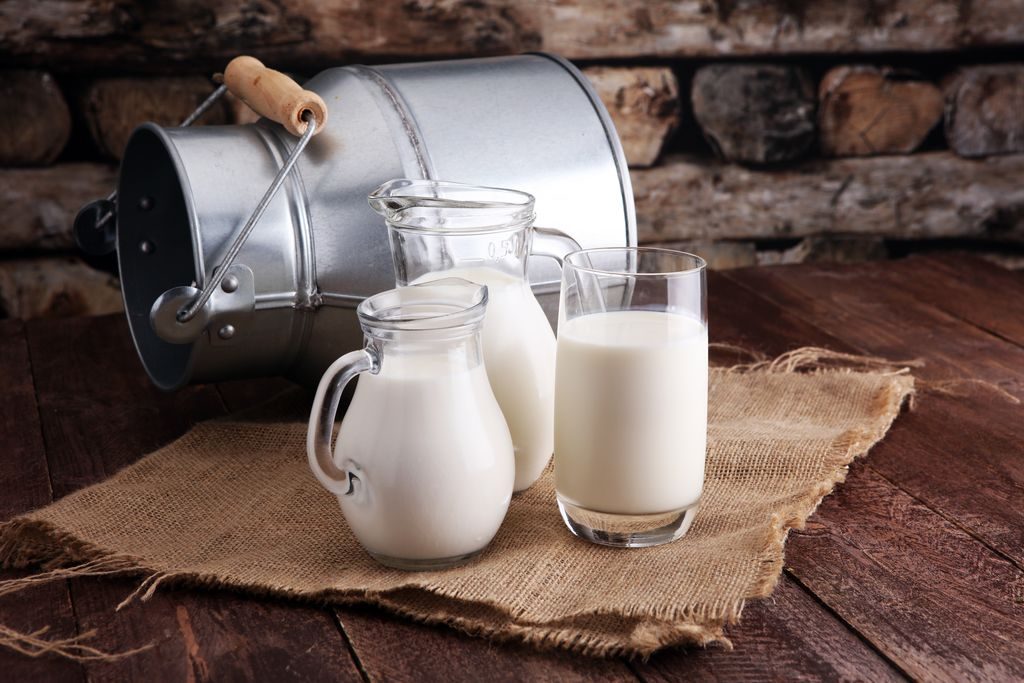Whole milk
Whole milk is a dairy product that most commonly comes from cows. Whole milk has had nothing removed from it so it tastes rich and creamy.

Whole milk is a dairy product produced by cows however you can also find milk from other livestock such as goat, buffalo, and yak! Whole milk means that no fat has been removed from the milk. Fresh milk is sold in cartons or bottles but you can also buy powdered milk and UHT milk. Whole milk is found in lots of dairy products like cheese, butter and yogurt.
Whole milk nutrition
Milk is a good source of vitamins and minerals like calcium and protein. It also contains good amounts of vitamins A and E. Per 100ml of whole milk there are about 61 calories and 113mg of calcium. Whole milk also contains a 4.8g of carbohydrates and has a fat content of 3.25g per 100ml
People who suffer from lactose intolerance can find lactose-free alternatives such as milk made from soybeans, rice and almonds.
Whole milk vs semi-skimmed and skimmed
Skimmed and semi-skimmed milk may have a lower calorie content than whole milk but that doesn’t necessarily mean it’s better for you. Recently a major study suggested that consuming whole milk and dairy products can be more beneficial to your health. The researchers found that those who consumed whole fat dairy products were 8% less likely to be obese or overweight.
The process semi-skimmed milk goes through to reduce its fat content also reduces the quantity of vitamins A and E, thus making it less nutritious.
Whole milk for babies
Whole milk and whole milk products can be given to children over the age of 1. Before then babies either should be breasts fed or given special formula so they can get the right balance on nutrients.




